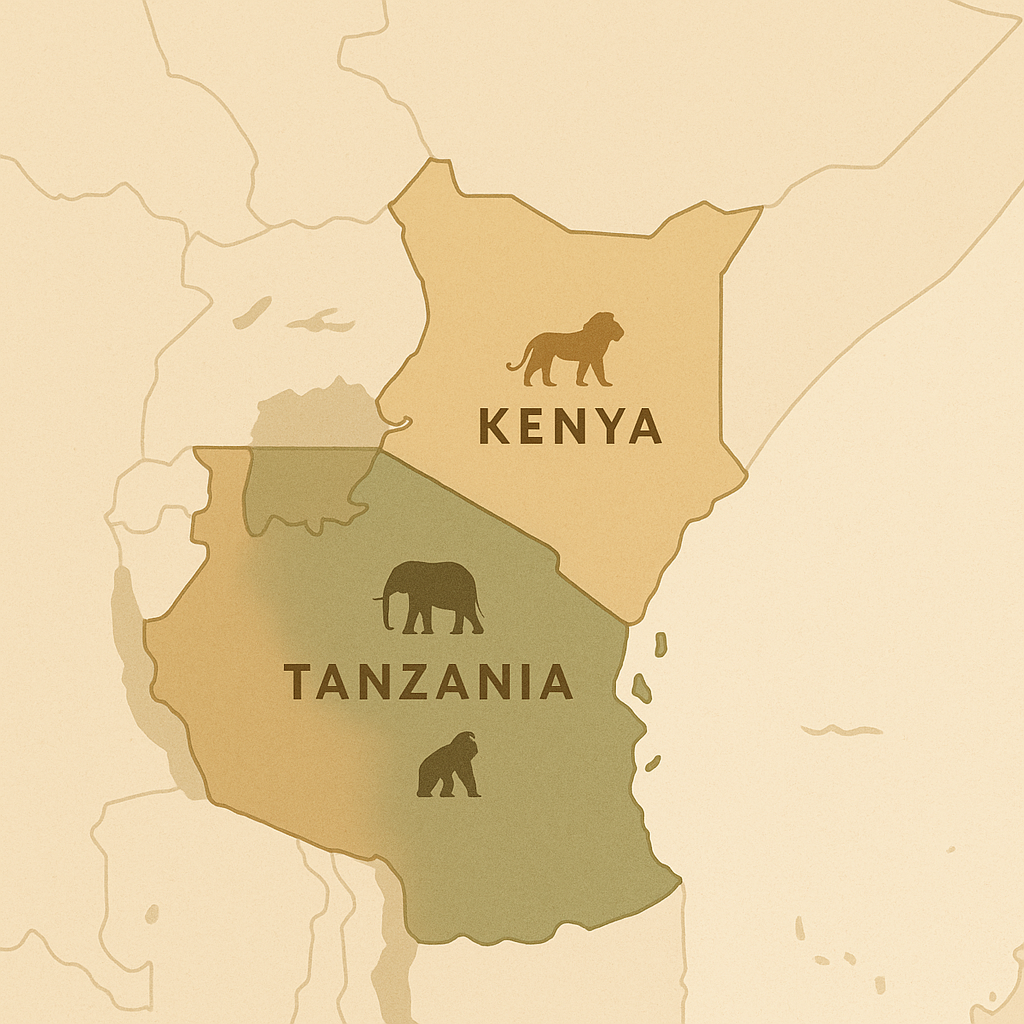East Africa isn’t just a place—it’s an adventure in high definition. Think roaring lions at sunrise, herds of wildebeest kicking up dust, and sunsets that look like they’ve been painted with fire. If you’ve been dreaming about going on safari, here’s how to turn that dream into a well-planned reality.
1. Pick Your Safari Style
Do you want to sleep in a luxury lodge with infinity pools overlooking the savannah, or do you crave the thrill of a tent under the stars? Your style will determine where you go and what you pack.
• Luxury lodge safari – High-end comfort, gourmet meals, and top-notch guides.
• Mobile tented safari – A mix of comfort and authenticity.
• Budget camping safari – Rugged, adventurous, and perfect if you’re more about wildlife than wine lists.
2. Choose Your Destination(s)
East Africa covers a lot of ground, so focus on what you want to see:
• Kenya – The Maasai Mara, Amboseli (with Kilimanjaro views), and big cat action.
• Tanzania – Serengeti, Ngorongoro Crater, and Zanzibar for post-safari beaches.
• Uganda & Rwanda – Gorilla trekking and lush rainforest experiences.
You can combine countries for a multi-stop adventure, but don’t try to cram too much in—wildlife doesn’t run on your schedule.
3. Time It Right
The Great Migration in the Serengeti and Maasai Mara runs roughly from June to October. Calving season is in late January–February. Bird-watchers may prefer the wetter months when migratory species arrive. Always check local weather and park conditions before booking.
4. Book with a Reputable Operator
A good safari operator is worth their weight in gold (or at least in well-charged camera batteries). They handle logistics, permits, and make sure you’re in the right place at the right time. Look for:
• Positive reviews from past travelers.
• Membership in recognized travel associations.
• Guides with strong local knowledge.
5. Pack Smart
Bring lightweight neutral clothing, a hat, sunscreen, insect repellent, and a camera with extra memory cards. Binoculars make a big difference, especially for birding or spotting distant predators.
6. Respect Nature
Keep your distance from wildlife, follow your guide’s instructions, and avoid plastic waste. A safari is about witnessing nature without disrupting it.
________________________________________
Ready to start your adventure?
